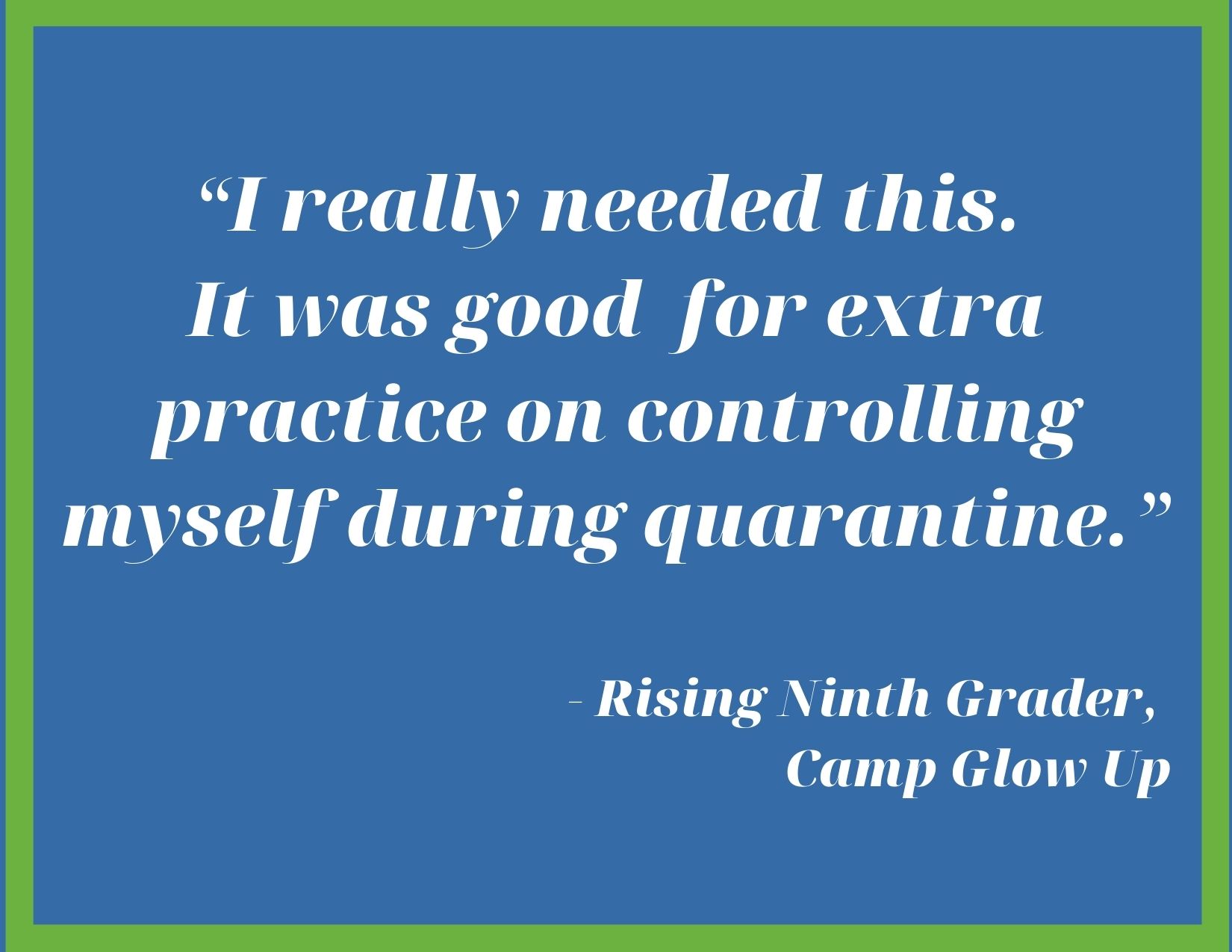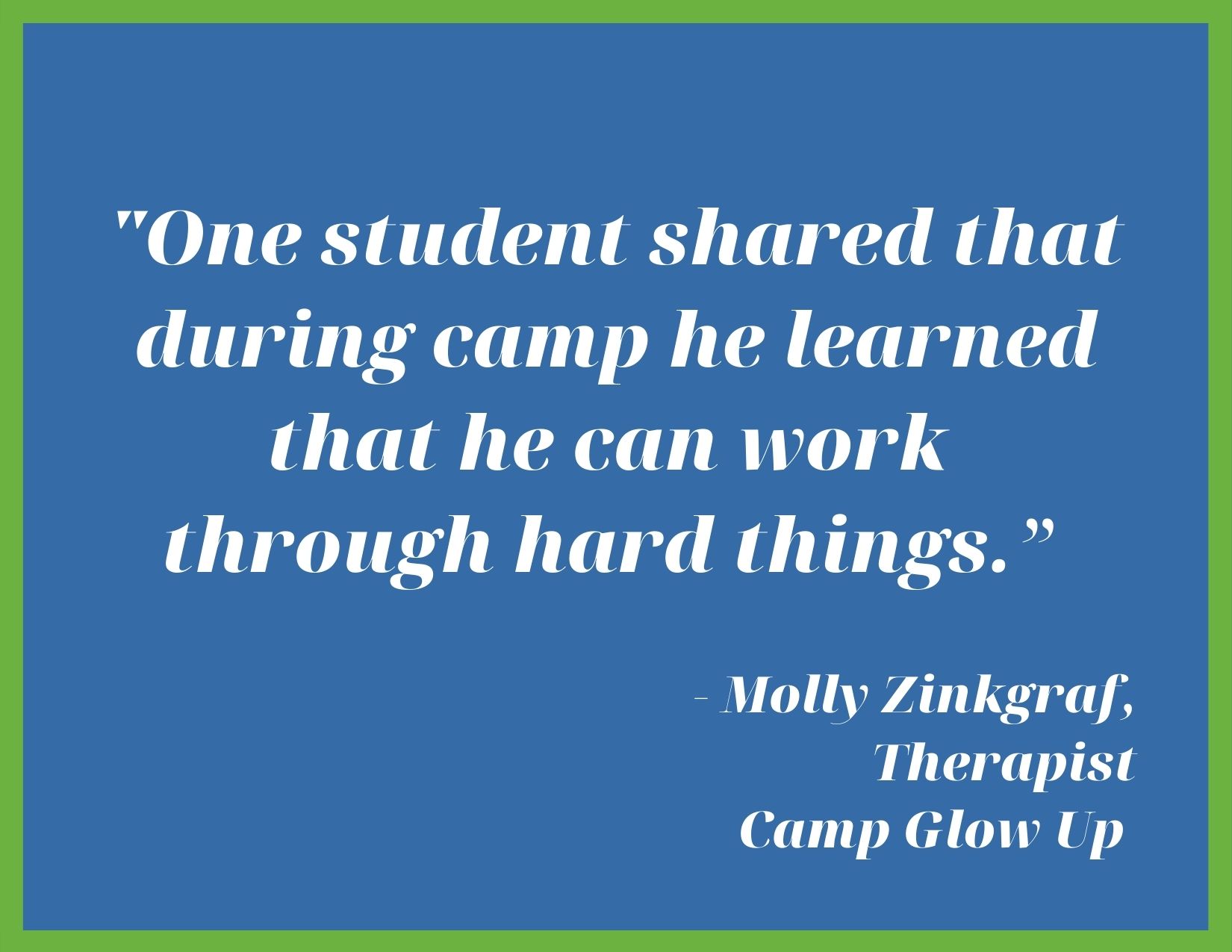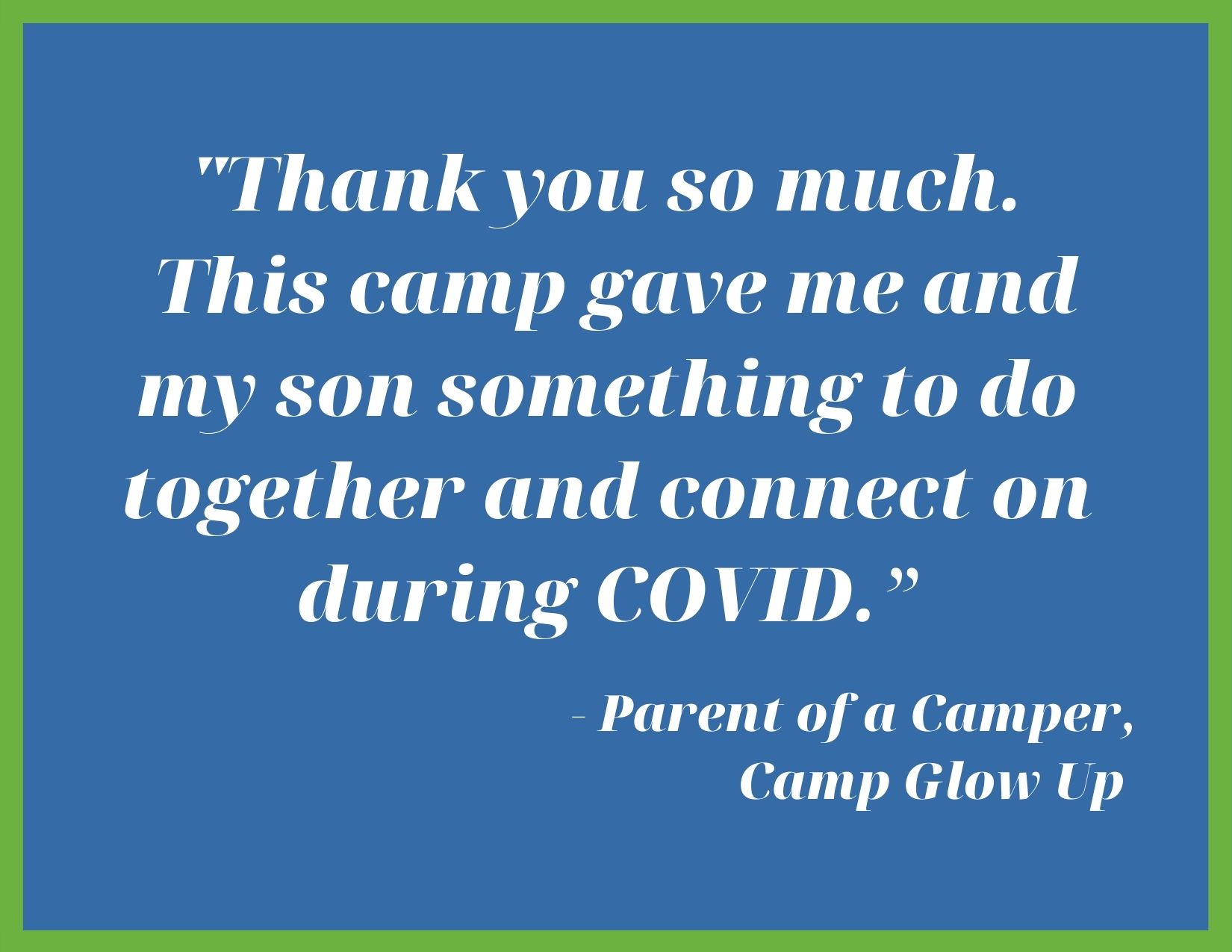
As the pandemic continues to affect the D.C. area, it has taken a particular toll on children in low-income neighborhoods, many of whom struggle with mental health or trauma-related issues. These areas have been disproportionately affected by COVID-19, endangering thousands of families in need. Isolated from their friends at school, and unable to see their providers in person, the crisis is making these already vulnerable kids even more susceptible to emotional distress. To ensure these children receive the help they need while in quarantine, Catholic Charities DC’s children’s behavioral health staff has launched two six-week virtual summer camps to keep them engaged and connected.
SUSO Virtual Camp, managed by the Show Up, Stand Out staff, focuses on empowering elementary and middle school students who have histories of being chronically absent from school.
Led by youth service providers using video conferencing, programming includes entrepreneurship, yoga, mindfulness and mentoring. Campers learn vital skills to build mental strength, courage and confidence and to increase social-emotional learning. The diverse workshops help highlight students’ talents, nurture their leadership qualities, and teach them to communicate effectively.
The 22 campers also have the chance to discuss current events. Two students are using the information they have learned in their entrepreneurship workshops to come up with creative ways they and their fellow students can give back to those in their community who have been impacted by the pandemic.
“All of my students expressed gratitude for allowing them to have a space to meet other kids feel connected, and build rapport with others.,” said therapist Shawnita McComb. “It seemed to mean a lot to these kids to be able to engage in this capacity especially during such a trying time.”
Recognizing that the pandemic affects the whole family, SUSO Virtual Camp also engages parents to discuss problems they’re facing. Program manager Lashunda Williams meets with parents each week to work through stressors, and the staff counsel families on the best strategies to tackle challenges such as dealing with childcare issues, de-escalating domestic disputes and communicating current events to their children.
“My children worked so hard during camp and the whole family is proud,” one parent said. “I am so appreciative of the summer camp team for their support.”

A second camp, Camp Glow Up, led by KaShawna Watson, School-Based Mental Health program manager, works with students of all ages who have clinical mental health issues, helping them to process trauma and behavioral concerns.
“Summer camp was a huge hit for the students and therapists involved,” said therapist Molly Zinkgraf. “Prior to camp, I had noticed many of my students losing interest in individual teletherapy interventions. Summer camp allowed them to reconnect with kids their age with similar experiences.”
Each week, staff focus on a challenge that campers have experienced, such as grief and loss, anger management and trauma. Campers participate in fun, engaging arts and crafts activities to learn coping skills to help them recognize and manage their feelings in healthy ways. One student, who had a history of engaging in fights at school, initially expressed concern about returning to an environment with his peers. But after learning and practicing anger management strategies at Camp Glow Up, he says he now feels confident and well-equipped to communicate with other students without getting physical.
“ [My favorite part of camp] was learning new things and new coping skills,” one camper said.
Projects have included anger thermometers, sensory bottles to reduce anxiety, feeling charts to identify their emotions and memory boxes to memorialize a lost relationship. One of the campers’ favorite activities was building brains and neurotransmitters to learn about the science behind emotions during the week focused on trauma. Camp provides all the supplies needed, as well as other fun treats that the staff hand-deliver to campers each week.

“The students love getting their boxes of supplies each week,” Watson said. “They love to try to figure out what they’ll be making with all the fun stuff inside. It gives them something consistent to look forward to.”
Clinical therapists work on the activities with small groups in Zoom breakout rooms, giving them a safe space to discuss what they’re feeling and experiencing. Many have talked about how their communities have been affected by recent incidents of police brutality and the Black Lives Matter movement. They regularly express concerns about their safety.
“Camp has given students the opportunity to explore critical social-emotional topics,” said camp therapist Francesca Orfila, “while practicing them live with their peers. They are more confident interacting with new people, and have become more responsible and accountable since the start of the program.”
They also learn about hate and how to understand and respond to strong emotions without escalating or resorting to physical reactions. They have also talked at length about feelings of grief they’re experiencing because of the pandemic’s impact on their relationships with friends and family. They regularly use therapeutic techniques like mindfulness and grounding exercises, special breathing, and even having mint tea with their parents when they’re feeling anxious.
Students report that the camp gives them a sense of normalcy by validating what they’re feeling and helps them realize that they’re not alone. They are embraced by a community of kids facing the same challenges, which enables them to support each other. Parents have said that Camp Glow Up gives their children a renewed sense of structure in their lives and that the staff have been consistent, which is critical to children who have experienced repeated instances of loss.
“Thanks to you all,” one mother recently told Watson, “my son is showing interest in learning new things again. You all are very much appreciated.”